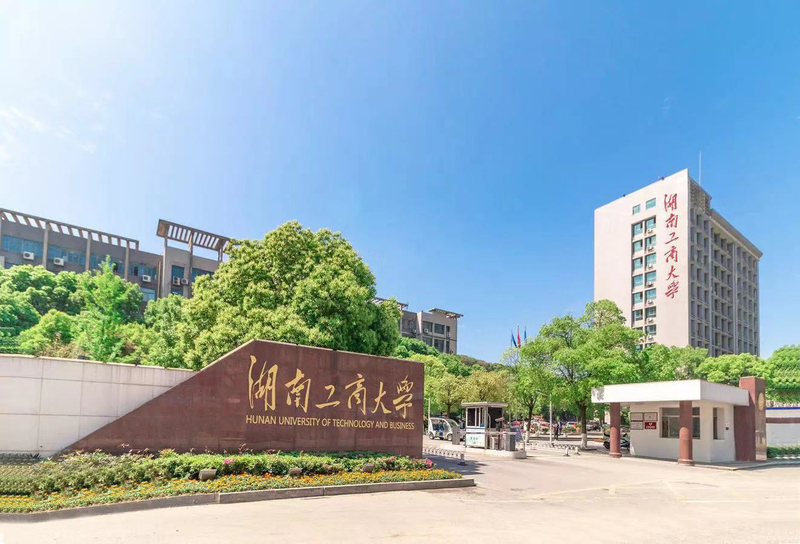Focusing Consistently On Cutting-Edge Fields of Artificial Intelligence and Advanced Computing, Xiangjiang Laboratory Celebrates Its Third Anniversary
2025-07-19
Hunan Daily, July 11 (by Omnimedia reporter Liu Zhendong) — Recently, the first council meeting of 2025 for the Xiangjiang Laboratory was held. This meeting coincides with the third anniversary of the unveiling of the Xiangjiang Laboratory. The meeting reviewed a report on the progress of the Xiangjiang Laboratory and discussed promising prospects for its future development.

As a major scientific and technological initiative deployed by the Hunan Provincial Committee of the Communist Party of China and the People’s Government of Hunan Province, the Xiangjiang Laboratory has focused on the cutting-edge fields of artificial intelligence and advanced computing since its establishment on July 10, 2022. It has developed a collaborative development model involving its headquarters, universities, and industrial alliance enterprises under the "integration of computing power, algorithm, computing basis and computing network" framework. The laboratory has established an integrated scientific and technological innovation system comprising innovation research institutes, R&D centers, regional innovation centers, artificial intelligence social laboratories, and PI teams led by academicians and experts. It has been honored with prestigious awards such as the Hunan Provincial Science and Technology Outstanding Contribution Award, the Ho Leung Ho Lee Foundation Prize for Scientific and Technological Progress, the First Prize of the Award for Outstanding Achievements in Scientific Research of Colleges and Universities (Science & Technology) from the Ministry of Education, and the First Prize of the Hunan Provincial Scientific and Technological Progress Awards.
The Xiangjiang Laboratory has successively launched a total of 24 innovative products, labeled "Xiangjiang No. 1" to "Xiangjiang No. 24," spanning fields such as AI pre-trained large models (including cultural creativity, intelligent manufacturing, pathology, transportation, and other large models), embodied intelligent (humanoid) robots, intelligent agents, brain-like intelligence, bio-intelligent manufacturing, industrial digital twins, the metaverse, culture + technology, smart transportation, low-altitude economy, smart energy, intelligent computing acceleration, and secure sharing of computational data. It has engaged in deep collaborations with leading enterprises such as Huawei, Baidu, JD.com, H3C, Unitree Robotics, and Leju Robot, and has established regional innovation centers in Yueyang, Xiangtan, and other locations. As the sole or primary unit, it has been granted over 160 national invention patents and was selected as one of Hunan Province's first batch of Research Institution Intellectual Property Centers. The laboratory has also established a wholly-owned subsidiary, Xiangjiang Intelligent Computing (Hunan) High Tech Development Co., Ltd., dedicated to the transformation and industrialization of its scientific and technological achievements.
At present, the Xiangjiang Laboratory has formed a dedicated and part-time research team, including a group of academicians from both the Chinese Academy of Sciences and the Chinese Academy of Engineering, foreign academicians, and national-level talents such as Changjiang Scholars and Distinguished Young Scholars. It has coordinated efforts to advance the integrated reform of the mechanisms for education, technology, and talent, successively obtaining approvals for the Hunan Provincial Postdoctoral Innovation and Entrepreneurship Base and the National Postdoctoral Research Workstation. Relying on the Xiangjiang Laboratory, a number of student scientific and technological innovation teams have been cultivated, consistently achieving top honors such as national championships and first prizes in the China Robotics and Artificial Intelligence Competition, special awards in the National "Challenge Cup" series of competitions for college students, first prizes in the Global Campus AI Algorithm Elite Competition, as well as silver awards in the China International College Students’ Innovation Competition.
Chen Xiaohong, Academician of the Chinese Academy of Engineering and Vice Chairperson of the Xiangjiang Laboratory Council, stated that in the future, the Xiangjiang Laboratory will further consolidate development synergies, focus on strengthening breakthroughs in key core technologies in the fields of artificial intelligence and advanced computing, increase efforts in talent recruitment and cultivation, and streamline the innovation chain encompassing "talent aggregation + basic research + technological breakthrough + achievement transformation + industrial incubation." This will drive the deep integration of technological innovation and industrial innovation, providing stronger support for high-quality economic and social development.
Li Zhijian, Secretary of the Leading CPC Group of the Department of Science and Technology of Hunan Province, emphasized that the Xiangjiang Laboratory should focus on enhancing the quality of its substantive operations. It must not only leverage the strengths of co-construction and participating units but also improve its independent operational mechanisms, forming a collaborative innovation framework involving multiple entities. He emphasized the need to concentrate efforts on tackling key core technologies, focusing on areas such as green advanced computing, artificial intelligence, and brain-computer interfaces, and to effectively integrate technological innovation with industrial innovation. Additionally, it is crucial to actively align with national strategic layouts, conduct organized scientific research, and accelerate breakthroughs in more cutting-edge technologies. He also stressed the importance of focusing on attracting and cultivating high-level talents, continuously innovating methods, and accelerating the formation of a dedicated high-level talent team with a tiered layout and rational structure, thereby enhancing the laboratory's core competitiveness.
Chen Zhuoyi, Deputy Director of the General Office of the Hunan Provincial People's Government and Chairman of the Xiangjiang Laboratory Council, emphasized that the Xiangjiang Laboratory must focus on its mission and positioning, consistently addressing national strategic needs and industry pain points. It should strengthen innovations in organizational models and management mechanisms, optimize and enhance talent growth, and further improve the quality of the laboratory's substantive operations. It is essential to strengthen collaborative innovation, more precisely refine scientific questions, enhance coordinated efforts to conduct organized scientific research, strategically target cutting-edge technologies, and produce more landmark scientific achievements. It is imperative to standardize management and operations, striving to build a work pattern where all parties share responsibility and collaborate. By improving mechanisms, standardizing management, and strengthening support, we will jointly sustain the laboratory's robust momentum for innovation.
In the next step, the Xiangjiang Laboratory will deeply advance high-level technological innovation projects, continuously implement high-level talent recruitment and cultivation initiatives, and accelerate the quality improvement and efficiency enhancement of substantive operations. Aligning with the goals outlined in the construction plan to "consolidate foundations, create distinctive features, and produce achievements, promoting high-standard and high-quality development of the laboratory," it will persist with sustained efforts and long-term commitment. The laboratory aims to achieve new successes in technological breakthroughs, talent team building, substantive operations, and the transformation of scientific and technological achievements, comprehensively driving high-quality development. It will continue to focus on building strategic technological strength in the fields of artificial intelligence and advanced computing, making new and greater contributions to achieving high-level self-reliance and self-improvement in science and technology.
Link:









